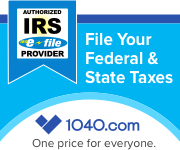Keeping track of your mileage can add up to big savings on your tax return. The most important thing to remember is that you must keep accurate records in order for the deductions to be allowed.
You can use a Mileage and Expense Log to document business and personal mileage for the year. Make sure to document what your ending and beginning mileage for the year is for each vehicle used.
You can use a diary or daily planner to record mileage.
Mobile Apps for Tracking Mileage and Car Expenses
Tired of keeping track of mileage on paper? Use a mobile iPhone/iPad application. You can have it with you at all times. It’s easy, convenient, and effortless.
- QuickBooks Self-Employed: Mile Tracker, Taxes (iOS | Android)
- Car Manager Lite (Android, iOS) Free version, or $4.99
- Mileage Expense Log (iOS) Free version
- TripLog (Android, iOS) Free version, Personal $1.50/month ($15 annually), or Business $2.50/month ($25 annually)
Actual Expenses
Actual Expenses Method
- Depreciation
- Insurance
- Registration and license plate fees
- Parking fees and tolls
- Garage rent
- Lease payments
- Repairs and maintenance (including tires)
- Gasoline and oil
- Car washes
The maximum depreciation deduction allowed may be limited due to the IRS passenger automobile rules. If you choose to take actual expenses when you first start using the car for business, you cannot change to the standard mileage rate deduction. You also might be able to take advantage of other vehicle-related benefits, including a tax credit for hybrid motor vehicles and alternative fuel motor vehicles.
Standard Mileage Rate
Standard Mileage Rate Method
- You own two or more vehicles that are used for business at the same time. You are not using two or more vehicles for business at the same time if you alternate using the vehicles for business (you use different vehicles at different times).
- Your employer provides you with a vehicle. In this instance, you might be able to deduct the actual expenses of operating that vehicle for business purposes. The amount you can deduct depends on the amount that your employer included in your income and the business and personal miles you drove during the year.
Types of Mileage Expenses
Claiming Mileage Expenses
Medical Expense
Generally, you can claim a medical expense deduction for yourself (and your spouse if married filing jointly) or your dependent driven primarily for, and essential to, medical care. You can also deduct parking fees and tolls.
Charitable Purposes
You can claim a charitable contribution deduction for performing services for a charitable organization. You can also deduct parking fees and tolls.
Job Seeking Purposes
Mileage expenses incurred while seeking new employment in the same occupation are deductible. Parking fees and tolls are also deductible.
Employee Business Expense
Mileage expenses incurred while using your car for business purposes at the request of your employer are deductible. Also, mileage expenses going from one job to another job or from your job to school is deductible. Parking fees and tolls are also deductible. You may deduct expenses for local travel that is between your main job (your principal place of business) and a second job. You cannot deduct the cost of taking a bus, trolley, subway, taxi or of driving a car between your home and your main place of work (commuting expenses).
Educational Expense
If you are regularly employed and go directly from home to school on a temporary basis for improving your job skills, you can deduct the round-trip costs of transportation between your home and school.
Moving Expense
If certain conditions are met, you can deduct mileage for a moving expenses. Tolls and parking fees can be deducted as well.
Record Keeping
Record Keeping Tips
Requirements
You should keep adequate records to prove your expenses or have sufficient evidence that will support your own statement. You must generally prepare a written record for it to be considered adequate. This is because written evidence is more reliable than oral evidence alone. However, if you prepare a record in a computer memory device with the aid of a logging program, it is considered an adequate record.
You should keep the proof you need in an account book, diary, statement of expense, or similar record. You should also keep documentary evidence that, together with your record, will support each element of an expense.
The records to keep are:
- Total miles for the year
- Mileage for each deductible use
- Times and dates
- Place/address
- Business purpose
- Charitable purpose
- Educational purpose
- Medical purpose
- Moving purpose
- Receipts, canceled checks, or bills
Timely-kept Records
You should record the elements of an expense or of a business use at or near the time of the expense or use and support it with sufficient documentary evidence. A timely-kept record has more value than a statement prepared later when generally there is a lack of accurate recall. You do not need to write down the elements of every expense on the day of the expense. If you maintain a log on a weekly basis that accounts for use during the week, the log is considered a timely-kept record. If you give your employer, client, or customer an expense account statement, it can also be considered a timely-kept record. This is true if you copy it from your account book, diary, statement of expense, or similar record.

